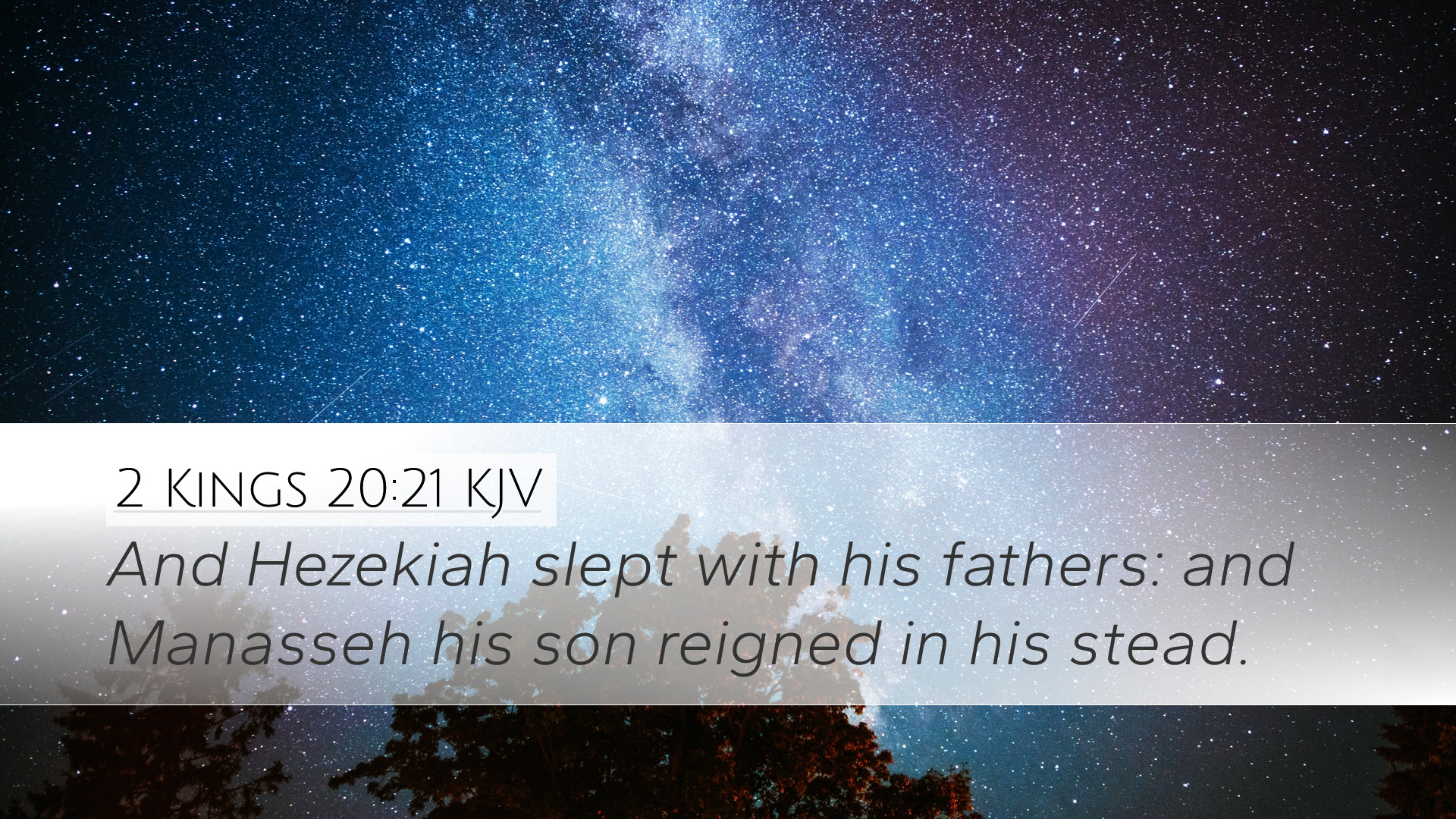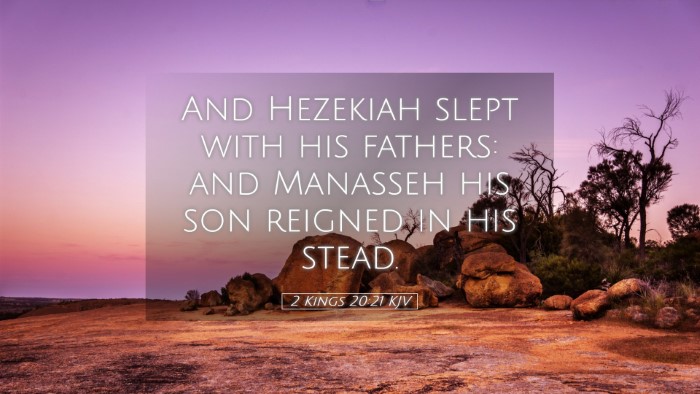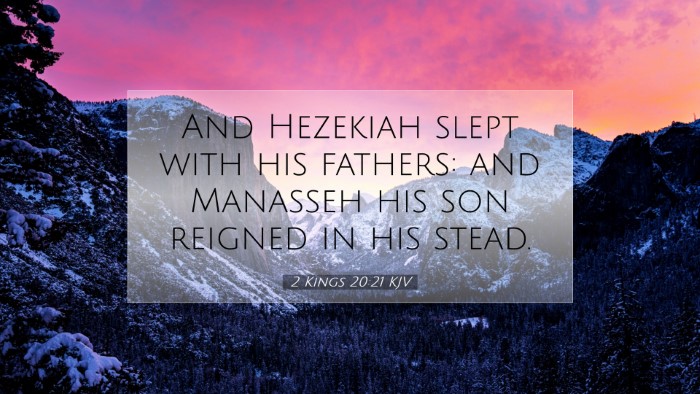Old Testament
Genesis Exodus Leviticus Numbers Deuteronomy Joshua Judges Ruth 1 Samuel 2 Samuel 1 Kings 2 Kings 1 Chronicles 2 Chronicles Ezra Nehemiah Esther Job Psalms Proverbs Ecclesiastes Song of Solomon Isaiah Jeremiah Lamentations Ezekiel Daniel Hosea Joel Amos Obadiah Jonah Micah Nahum Habakkuk Zephaniah Haggai Zechariah Malachi2 Kings 20:21
2 Kings 20:21 KJV
And Hezekiah slept with his fathers: and Manasseh his son reigned in his stead.
2 Kings 20:21 Bible Commentary
Commentary on 2 Kings 20:21
Verse: "And Hezekiah slept with his fathers: and Manasseh his son reigned in his stead."
Introduction
The passing of King Hezekiah marks a significant transition in the history of Judah. The verse encapsulates a poignant moment of change in leadership, signaling a shift in the spiritual and political landscape of the nation. By analyzing this passage through various public domain commentaries, we gain insights into its theological implications, historical context, and spiritual lessons.
Contextual Background
Hezekiah is often remembered as one of Judah's most righteous kings, known for his reforms and dedication to Yahweh. His reign was characterized by a revival of true worship and a strong defense against idolatry. He faced the Assyrian threat with faith and received divine intervention during the siege of Jerusalem. This passage not only reflects the conclusion of his life but also the consequences of his legacy, especially through his son, Manasseh.
Historical Insights
- Matthew Henry: Henry draws attention to the importance of Hezekiah's prayers and reforms, underscoring that his life was filled with moments of active faith. His illness and subsequent healing also serve as pivotal points in understanding divine mercy and judgment.
- Albert Barnes: Barnes offers commentary on the succession to Manasseh, noting the stark contrast between his father and himself. He labors to highlight the moral decline that follows Hezekiah's death, which invites significant theological reflection on leadership and its impact on national identity.
- Adam Clarke: Clarke focuses on the narrative surrounding Hezekiah’s death, emphasizing the pastoral nature of God’s dealings with His people. He reflects on how the transition of power from a righteous king to a notoriously wicked one serves as a warning to future generations.
Theological Reflection
This verse profoundly challenges readers to contemplate the nature of legacy in leadership. A righteous king's faith may be derailed by an unfaithful successor, which is echoed in histories of both the Old Testament and contemporary contexts.
- Spiritual Legacy: The text compels us to consider what kind of spiritual legacy leaders leave behind. Hezekiah's devotion led to great reforms, but the ensuing reign of Manasseh serves as a telling reminder of the potential for apostasy.
- Divine Sovereignty: The shift in leadership reflects God's sovereign will. Even in the face of human disobedience, God orchestrates history for His purposes, as seen later in the story of redemption through Israel.
Practical Applications
For pastors and theologians, this passage encourages reflection on how leadership choices affect congregations and communities. The narrative teaches the importance of mentoring and guiding future leaders in faithfulness to God, pointing to the need for spiritual discernment in succession planning.
- Impact of Leadership: Leaders should recognize their role in shaping the future of their communities. The story of Hezekiah and Manasseh serves as a clarion call for accountability and vigilance in spiritual matters.
- Intercessory Prayer: Hezekiah’s life illustrates the power of prayer in leadership. As believers, it’s crucial to commit leaders and their successors to prayer, asking God for His protection and guidance in their decisions.
Conclusion
2 Kings 20:21 serves as a substantial reminder of the realities of human leadership—both its potential for good and for harm. Hezekiah’s faithful reign was not enough to ensure the continuity of righteousness in Judah, as demonstrated by the subsequent actions of Manasseh. This passage encapsulates a narrative rich with theological insight, urging readers toward a nuanced understanding of legacy, the challenges of succession, and the unwavering sovereignty of God.


